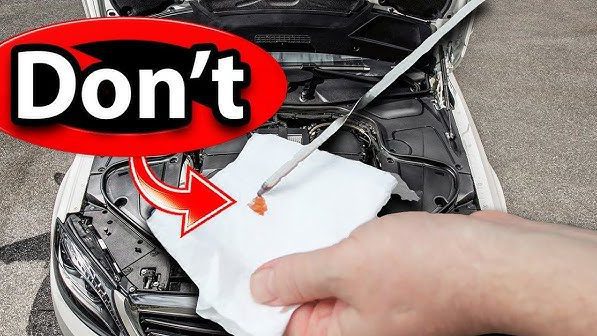
Meta Title:
What Happens If Steering Oil (ATF) Is Not Changed? – Belmont Lubricants
Smooth steering is essential for safe driving, and one of the most overlooked aspects of vehicle maintenance is steering oil, also known as Automatic Transmission Fluid (ATF) when used in the steering system. Many drivers do not realize the importance of changing steering oil at regular intervals. But what happens if steering oil (ATF) is not changed? The answer lies in understanding how this vital fluid works and what problems may occur if it becomes old, contaminated, or depleted.
In this blog, we will cover the role of steering oil (ATF), the consequences of not changing it, common symptoms of bad steering oil, recommended replacement intervals, and why choosing high-quality ATF from Belmont Lubricants ensures maximum protection for your vehicle.
Role of Steering Oil (ATF) in Your Vehicle
Steering oil or ATF is not just a lubricant; it plays multiple roles in ensuring smooth and safe steering performance.
- Hydraulic Pressure Transmission – Steering systems use hydraulic pressure to assist turning. ATF helps in creating this pressure effectively.
- Lubrication of Components – It lubricates the steering pump, valves, and seals, reducing friction and wear.
- Cooling Function – Steering oil continuously circulates through the system and carries away heat, preventing overheating of components.
- Seal Protection – The additives in ATF protect seals, preventing leaks and premature wear.
Without proper maintenance, old ATF loses its properties and leads to system damage.
What Happens If Steering Oil (ATF) Is Not Changed?
Failing to replace steering oil at the right time can cause serious problems in your vehicle’s steering system. Some of the most common issues include:
1. Hard Steering
Old ATF thickens over time and loses its hydraulic efficiency. This makes the steering wheel difficult to turn, particularly when driving at low speeds.
2. Noisy Operation
When steering fluid gets dirty, you may hear whining or groaning noises from the pump, especially during turns. This is an early sign of fluid degradation.
3. Increased Wear and Tear
Dirty fluid contains metal particles and debris, which act like abrasives and cause faster wear of the steering pump and rack components.
4. Steering Pump Damage
The pump heavily relies on clean ATF for smooth functioning. Contaminated oil increases friction and heat, eventually leading to pump failure.
5. Risk of Steering Failure
If ignored for too long, degraded fluid can cause complete failure of the steering system, which is a major safety hazard.
Symptoms of Bad or Old Steering Oil (ATF)
To avoid costly repairs, watch out for these symptoms that indicate steering oil replacement is overdue:
- Difficulty turning the steering wheel
- Strange whining or squealing noise while steering
- Leaks or dark-colored fluid
- Burning smell from steering fluid reservoir
- Jerky or uneven steering response
When Should You Change Steering Oil (ATF)?
Most manufacturers recommend changing steering fluid every 40,000–60,000 km or every 2–3 years, depending on driving conditions. However, heavy usage in city traffic, high temperatures, or frequent steering adjustments may require earlier replacement.
Always check your owner’s manual for the exact interval, and if you notice any of the symptoms above, change the fluid immediately.
ATF vs Power Steering Fluid – Are They the Same?
Many car owners wonder whether ATF and power steering fluid are interchangeable. Here’s the difference:
- ATF (Automatic Transmission Fluid): Primarily designed for automatic transmissions but used in many power steering systems. Contains detergents, anti-wear agents, and friction modifiers.
- Power Steering Fluid – It is specially made for steering systems and usually does not include detergents.
Always follow your vehicle manufacturer’s recommendation. Using the wrong fluid may damage seals and reduce steering performance.
Why Choose Belmont Steering Oil (ATF)?
At Belmont Lubricants, we manufacture high-quality ATF and steering oils that provide long-lasting protection and smooth performance. Our advanced formulations include:
- Anti-wear additives to extend pump and rack life
- Anti-foaming agents for consistent hydraulic pressure
- Oxidation resistance for longer oil life
- Seal compatibility to prevent leaks
Belmont ATF oils are trusted by vehicle owners across India for their reliability and performance.
You can also read our related blogs for more insights:
- How to Choose the Right UTTO Oil for Your Tractor
- Engine Oil vs Hydraulic Oil – Key Differences Explained
Frequently Asked Questions (FAQs)
Q1. What happens if I never change steering oil (ATF)?
If never replaced, old fluid loses its lubrication and hydraulic properties, leading to pump damage, steering noise, and potential steering failure.
Q2. Can I use ATF in place of power steering fluid?
Yes, if your car manufacturer recommends ATF for the steering system. Always follow the manual to avoid compatibility issues.
Q3. How do I know if my steering oil is bad?
Check for dark, dirty, or burnt-smelling fluid, difficulty in steering, or whining noises during turns.
Q4. How often should I change steering oil in India?
Typically every 40,000–60,000 km or 2–3 years, but it depends on usage and climate.
Q5. Does Belmont manufacture ATF steering oils?
Yes, Belmont Lubricants produces premium ATF steering oils designed to protect pumps, seals, and steering systems under Indian driving conditions.
Conclusion
Neglecting steering oil (ATF) replacement may not cause immediate breakdown, but it slowly damages vital steering components, leading to expensive repairs and safety risks. Regular maintenance ensures consistent and reliable performance.
For the best results, choose high-quality ATF from Belmont Lubricants. Our advanced steering oils deliver maximum protection, smoother handling, and longer service life, making them the preferred choice for automotive users in India.
